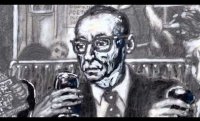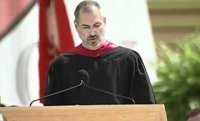Michael Oliver: Poetry From Trinidad to D.C.
Poet, playwright, theater artist, and educator Michael Oliver blogs about his P&W-supported writing workshops at CentroNia and Pigment Art Studio in Washington, D.C.
My poetry writing workshops at CentroNia and Pigment Art Studio have been among the most eclectic workshops I have ever engaged in, as a participant or as a leader. The mostly older adult group has ranged from the experienced poet with several books published to the poetry enthusiast who joined the workshop as a way to nurture his or her appreciation for the art. Many have joined for the long haul, coming back with new work each time; some have visited with a friend, shared work, and moved on. Most come from neighborhoods close to CentroNia, some from the suburbs of D.C.; some from rural areas, attending because they were in town for the weekend and decided to check it out.
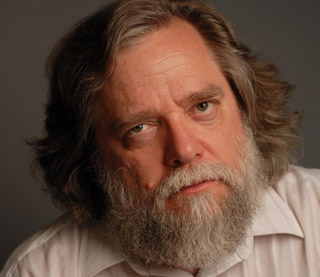 For some, like Janet Martin from Trinidad, poetry has long been a lifeline. Poetry sustains her through tragedy and anchors her as she embraces those struggling around her. In her poem, "Ju Ju Girl, Island Gal," she speaks of solace wrought from her island self:
For some, like Janet Martin from Trinidad, poetry has long been a lifeline. Poetry sustains her through tragedy and anchors her as she embraces those struggling around her. In her poem, "Ju Ju Girl, Island Gal," she speaks of solace wrought from her island self:
ju ju gal dancin' on I soul
spirit steppin' a jewel to behold
transformin' I back to me tru self
For D.C.-native Diane Gardner as well, poetry brings comfort through the bittersweet joy of memory. Her poem "Mother Lee" pays loving tribute to her late mother, Alice Lee:
I long for the old time step and glad return;
I lived your last breath like a fish out of water
You slipped away on my birthday like a petal on a cool breeze.
Mama—
I long for the old time step and glad return.
Alice's baby girl.
Whatever the background or level of craft of participants, the workshops have been encouraging and instructive, as my approach to writing with others in a poetic learning environment has always been to harnass the power of collective wisdom. I like having each participant share his or her perceptions of a poem, avoiding judgment as much as possible. I try, to the best of my ability, to bring collective wisdom to some kind of resolution or summary, steering the writer to another poet or to an overall perception, without forcing an issue.
These workshops continue to provide a safe and nurturing space for the evolution of new poetic voices and the honoring of life stories, extraordinary in their depth and resilience. The art of the poem unites us, keeps folks coming back, month after month. We look forward to our gatherings.
Photo: Michael Oliver. Credit: Franciso Rosario.
Support for Readings/Workshops events in Washington D.C. is provided by an endowment established with generous contributions from the Poets & Writers Board of Directors and others. Additional support comes from the Friends of Poets & Writers.





![THE RAVEN Trailer 2012 Movie - Official [HD]](https://www.pw.org/files/styles/video_thumb_medium/public/media-oembed/i.ytimg.com/vi/qeLrtwniqM4/hqdefault.jpg?itok=ToEGzGIT)
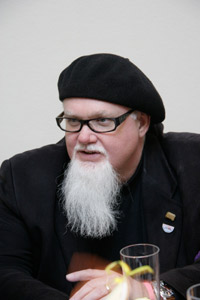 I love these folks. I have met monthly with them as a small way of giving back to the community where I was raised and still proudly live. In fact, I live in the same house that my wife grew up in, and where I walked to every night while dating her when we were fifteen-year-olds.
I love these folks. I have met monthly with them as a small way of giving back to the community where I was raised and still proudly live. In fact, I live in the same house that my wife grew up in, and where I walked to every night while dating her when we were fifteen-year-olds.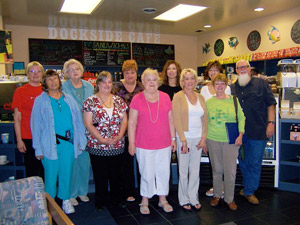 The evening concluded with another moving poem from one of our newer regulars, an eight-six-year-old widower who never wrote a poem in his life until he joined our group. He wrote about frequently waking up thinking there were “a lot of people in [his] house,” only to realize that he was alone.
The evening concluded with another moving poem from one of our newer regulars, an eight-six-year-old widower who never wrote a poem in his life until he joined our group. He wrote about frequently waking up thinking there were “a lot of people in [his] house,” only to realize that he was alone.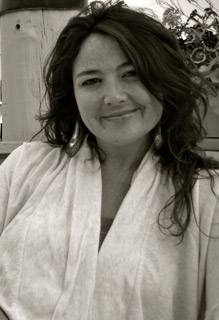 What techniques do you employ to help writers open up?
What techniques do you employ to help writers open up?